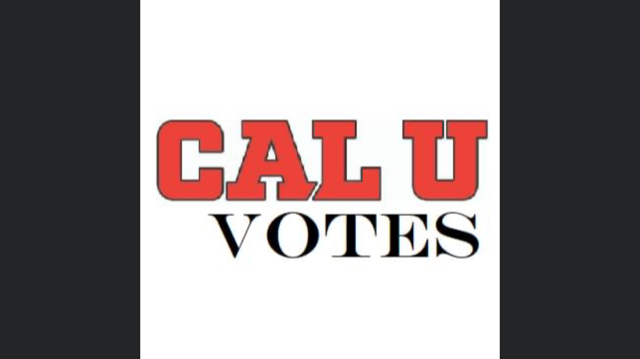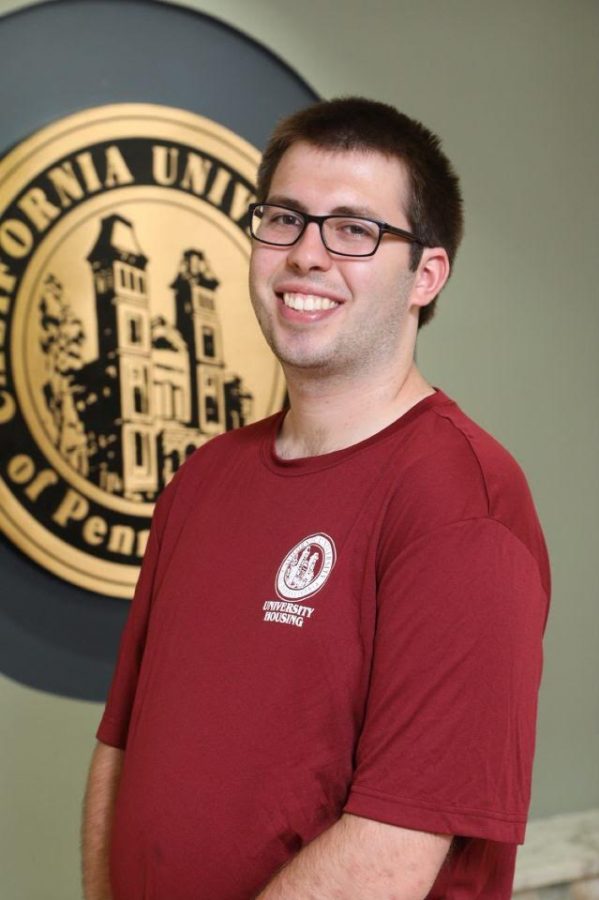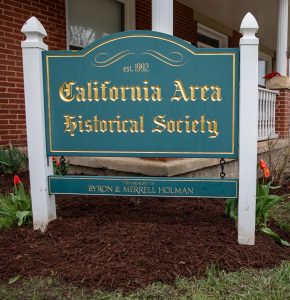My civic engagement campaign experience: Rising to the challenge in a time of COVID-19.
May 7, 2020
During the spring 2020 semester at California University of Pennsylvania, I served as an Institutional Fellow with the Campus Election Engagement Project (CEEP), a national, nonpartisan, nonprofit project that works with universities across the country to help engage students in local, state, and federal elections.
The work has three big goals: get out the vote, increase voter registration, and increase voter education.
Fellows were responsible for planning and executing four events or activities on campus to engage students in the upcoming primary elections, focusing on the three big goals. We also had to plan and propose an institutional change project, a change that would be placed into action now and continue for years to come to promote election engagement in the future.
My events largely centered around voter education. I received approval from University Housing to use a bulletin board in each of the campus residence halls to put information about the candidates running in the primaries, Pennsylvania voter laws, and information about how to register to vote.
This information would also be put into the format of newspaper articles and published in the Cal Times. At the end of March (prior to the voter registration deadline), I was going to hold a massive voter registration drive in the Natali Student Union during mealtimes to try to increase the voter registration of Cal U students, faculty, and staff.
The campus report from the National Study of Learning, Voting, and Engagement (NSLVE) showed that from the 2014 to 2018 elections, the voting rate of registered students jumped from 15.7-percent to 36.7-percent, a 21-percent increase. I wanted to increase that number and so to really try to drive the point home of why it is so important for students to be registered and show up at the polls, I was going to host a discussion panel in the beginning of April to discuss why voting is so important. Faculty from the Department of History, Politics, Society, and Law as well as from the Social Work program were going to participate as part of the panel, as were students from the College Democrats and College Republicans. I was also going to assist with voter registration and answer any questions anyone had at this event.
The coronavirus (COVID-19; COVID) pandemic certainly caused massive disruptions in election engagement plans. Myself and the rest of the fellows around the country had to move to entirely online formats for election engagement.
I decided to utilize the major social media platforms of Facebook (Cal U Votes), Instagram (@calvotes), and Twitter (@VotesCal) to continue to spread my message of why voting is so important.
Each weekday had a theme of different information that was shared. Mondays were dedicated to sharing information about Pennsylvania voter laws and voter registration information. Tuesday was voting related trivia. On Wednesdays, I shared background information about candidates running in the primaries and where they stood on the issues. On Thursdays, I shared testimonials from faculty about why they vote and why they feel it is important to vote. Then on Friday, I shared fun facts about elections and voting. For the institutional change project, I am hoping to team up with University Housing to create an Election Day Residence Hall Competition to see which building gets the most residents to show up and vote on Election Day. I have also considered creating a Civic Engagement club that would plan and host events and activities on campus and on social media to encourage voter registration and engagement.
The experience has been very rewarding, and I am hoping to continue these efforts in the fall in the lead up to the general election. I encourage everyone to go check out the social media pages I mentioned earlier and go register to vote. The deadline to register to vote in Pennsylvania is May 18! Happy voting!







